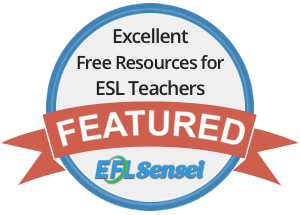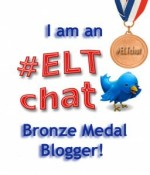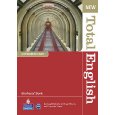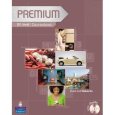In my first reading related post, I looked at things you might consider when selecting authentic reading texts. There’s quite a lot to consider, I think, and I can sometimes spend several hours searching for the right text. As Ray Williams said, back in 1986 (ELTJ 40(1)), ‘in the absence of interesting texts, very little is possible.’
Having spent all that time, the last thing you want is to only end up with a 20 minute activity in class, so I think it’s really worth considering how you can maximise what students get out of the text . Clearly, a major reason for using texts in class is in order to provide students with the opportunity to ‘notice’ language in context. However, can texts also be used to develop students’ actual ability to read effectively and efficiently?
Some of the reading skills which teachers and materials commonly aim to develop include:
- Skimming
- Scanning
- Reading for gist
- Predicting content
- Identifying point of view and tone
- Identifying main points
- Guessing meaning from context
- Recognising the organisation of a text
In recent years there has been some debate about the whole idea of developing students’ reading skills. Walter and Swan point out that there is perhaps an assumption that the learner does not already have these skills and that, if they do have them, that they are unable to transfer them into their first language. Thornbury gives the example of how he was able to apply his L1 reading skills to reading in Spanish, and how, as his Spanish improved, so did his reading. I think these are both very valid points. However, I do slightly wonder if Thornbury should consider himself typical of a language learner, as he was clearly very aware of his own language learning process. In my experience, many learners do not always have good reading skills in their first language and many do not seem able to automatically transfer them.
I certainly agree that it can be patronising to make students jump through hoops of skimming and scanning and I also agree with Swan and Walter that guessing meaning from context activities are too often impossible. That said, that if we reduce reading texts to no more than vehicles for useful language, we are selling our students short. What about the information and/or pleasure that can be gained from a text? We don’t read in our daily lives in order to notice language.
Of course, we don’t usually set ourselves a task either!
But we do need to give our students a reason to read, and a well designed task can provide that, as well as the opportunity to develop reading skills if they need to be developed. In order to be able to use a text as a source for language, the text needs to have been understood first and a task can also help to ensure this.
The question, perhaps, is not so much whether we should be setting reading tasks, but what kind of tasks we should be setting. Ideally, I think that the task should bear some resemblance to the way we might naturally read that genre of text. So, if you want students to read a set of food labels, there is not much point in setting a gist task! If it’s a carefully argued article, on the other hand, you might want to set a task which helps learners to identify these arguments and how they link together
Research has found (Carrell 1984, 1985), that understanding how different types of texts are organised is a key factor in understanding a text. This is something which is often focused on in EAP, but, I think, much less so in General English. Obviously this is partly because academic writing tends to have more clearly defined text types (cause and effect, problem-solution etc). However, I think all students can benefit from being able to recognise the organisation and development of a text. Here are a few prediction type activities which might help with this:
1 Get students to look at the visual clues- how the text is laid out, any pictures, any headings or sub-headings. Where do they think the text came from?
2 For a newspaper article, try getting students to read the title and the first paragraph. This is often a summary of the rest of the article, so students could predict what will be found in the rest of the article.
3 Ask students to read just the first sentence of each paragraph. This is often the topic sentence (sentence with the main idea), so this can give a good overview of the content of the text, and its organisation.
4 If the text already has comprehension questions (i.e. an exam practice text), give out the questions before the text and ask them to use the questions to predict the content of the text. Exam questions should go in the same order as the text, so it should be possible to make some predictions about the organisation of the text as well.
In my next post, I’d like to look more carefully at some different types of tasks and questions, the aim behind them, and some tips for creating them. If you want to receive this through your email, the button is on the right.














Hi Rachel,
Great post. Especially agree that students don’t necessarily already have developed reading skills in their first language. I had a student a few months ago–a very clever student–who borrowed a level 1 graded reader of a Sherlock Holmes collection. She returned it a month later with a big smile. As she handed it over she said, “It’s the first book I’ve ever read.” The level was, as is usually recommended for an extended reading program, a little below her comprehension abilities, but she didn’t seem to mind. And having had no real reading experience, at least of fiction, I think the fact that the language used in the text was readily comprehensible is what allowed her to read it through to the end. Still I know just as many students who can’t finish a graded reader, regardless of how accessable the language. So I think text selection is key. And genuinely interesting short texts are very hard to come by. When seen as another way to come at a text from a bunch of different angles, practicing reading skills such as skimming, reading for gist, and identifying tone are great in that they allow for students to read and reread the same text without growing board. And the best way to help students get good at reading is simply by getting them to read more.
Thanks for so much to think about. Looking forward to the next post.
I think this is a great example of a student not being able to transfer skills across, and I think that even when students do read widely in l1 they still don’t always transfer the skills because they are anxious about missing something perhaps.
And I think that having some different angles to approach a text is important too.
Thanks for reading, and for your comments
Adrian Tennant did a webinar recently titled Topics – the way into language where he highlighted the benefit of short reading texts. unfortunately i was doing something else at the time as well as there being technical problems with the webinar so i missed a lot of it. but the point was well made for focused reading to exploit short texts.
short texts immediately suggest Twitter and for example there is a guy called Teju Cole who does ‘compressed reports of unusual happenings’ (http://thenewinquiry.com/essays/death-by-twitter/), what the French call fait divers. playing around with the idea of using his tweets somehow, hoping your next post may help!
ta
mura
I didn’t see the webinar you mentioned, but it sounds interesting- wonder if it was recorded?
I’ll take a look at the texts you mention and, if I can, include something in my next post (no pressure then!)
you can see recorded webinars here http://www.macmillanenglish.com/BlankTemplate.aspx?id=43108, apparently you’ve done one?!
if you do get a chance to look at some of that type of text in yr nxt post that would be great!
Oops.. should have been aware of that webinar I guess! I’ll take a look.
Pingback: Getting students to notice language in reading texts | elt-resourceful
Thank you very much for your useful post. I’m considering applying authentic reading texts to my teaching grammar. I want to hear your voice because I still find it hard to design a syllabus and decide materials to teach.
Pingback: What kind of reading tasks might be worthwhile?...
Pingback: What are reading skills? –They’re not (only) what you think | elt-resourceful
As I read your work is really nice in its explanation but I think it is better to atach related lessons which can be given in the immediate classroom .
Thanks for commenting, Biruhneh. 🙂 The methodology articles are really more about general principles that could be applied to any materials but you will find ideas applied in the free lesson plan section of the website.